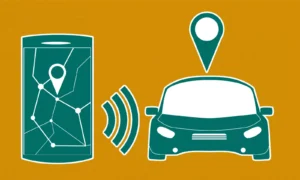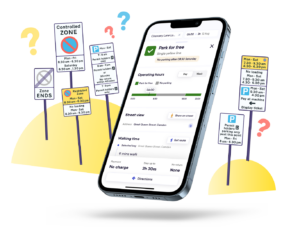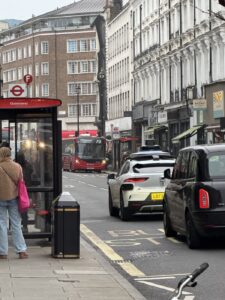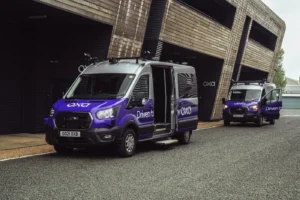Following the announcement that automated valet parking has been approved for commercial use in the P6 parking garage at Stuttgart airport, Bosch and APCOA are branching out and installing the technology in 15 further parking garages in Germany.
From Hamburg to Munich, work to expand the infrastructure-based, automated, and driverless SAE Level 4 parking system is set to start in 2023. As a first step, Bosch and APCOA are planning to make up to four parking spaces per parking garage ready for automated valet parking.
“We will expand the number of such parking spaces based on the expected ramp-up of vehicles featuring automated valet parking. Our experience with charge spots for electric vehicles shows us how important it is for infrastructure growth to keep pace with the technology. Together with our partner APCOA, we are now making sure that this will be the case for automated valet parking,” said Dr Markus Heyn, member of the Bosch board of management and chairman of the Mobility Solutions business sector. In the years ahead, Bosch’s modular system will allow the number of parking spaces featuring the infrastructure technology to be quickly expanded to up to 200 parking bays at each of the 15 locations.
The companies say the master agreement is the first step toward a worldwide market launch. The goal is to equip several hundred parking garages across the globe with automated valet parking in the years ahead.
“Germany is only the beginning – we’re expecting to soon be able to gradually roll out automated valet parking in other countries around the world as well, once the corresponding laws have been passed,” explained Claudia Barthle, who heads up global software and service sales in the Cross-Domain Computing Solutions division at Bosch and is responsible for the partnership with APCOA. Germany is one of the few countries to have already passed the Level 4 legislation that creates a framework for systems such as automated valet parking. Other countries, such as France, are poised to follow
“With the automated valet parking solution, we can offer our parking customers a whole new level of convenience. This function is especially advantageous at locations where time is an issue, such as airports, concert halls, event locations, and trade fair locations. In other words, our location at Stuttgart airport is only the beginning,” commented Frank van der Sant, a member of the board of management and chief commercial officer of APCOA PARKING Group. Automated valet parking will soon be available in selected parking garages in cities such as Hamburg, Berlin, Cologne, Frankfurt, and Munich. Further parking garages in Europe are set to follow.
The companies think automated valet parking is the wave of the future: “gone are the days of time-consuming searches for parking spaces, irksome manoeuvring, and the risk of dents and scratches”, they say. “The driver simply parks the vehicle in a handover zone near the entrance of a parking garage, and uses an app to start the highly automated and driverless parking service. The basis for this is Bosch stereo cameras, which not only identify vacant parking spaces but also monitor the driving aisle and its surroundings, and reliably detect obstacles or people in the aisle. If an unexpected obstacle is detected, the vehicle brakes and safely comes to a complete stop. Only once the route is clear does it continue on its way. For this purpose, all the data generated by the cameras is fed into edge computers. Smart algorithms transmit the driving maneuver to be made and thus enable driverless parking – even when moving between stories on narrow ramps. The distinctive feature of this solution is that the smart technology installed in the parking garage keeps the technical requirements in the vehicle to a minimum, so that the automated and driverless valet parking service lends itself to all vehicle classes.”
APCOA’s FLOW platform allows this service is not only driverless but also ticketless and cashless. Drivers are already using the eponymous app to help lighten the burden of parking. This ranges from making firm reservations for a parking space, to contactless entry into the parking garage – now, conveniently, via license plate recognition – and to fully automated payment, invoicing, and contactless exit. The system recognizes the customer’s vehicle or the license plate, and the barriers open automatically, making a ticket and trip to the ticket machine redundant. APCOA manages approximately 1.8 million individual parking spaces at over 12,000 locations in 13 European countries. By increasing the availability of driverless and highly automated valet parking services, the same amount of space could accommodate up to 20 percent more vehicles in the future. In addition, driverless parking is especially suitable for narrow, remote, and therefore unattractive parking areas.
(Picture – ACPOA)
























